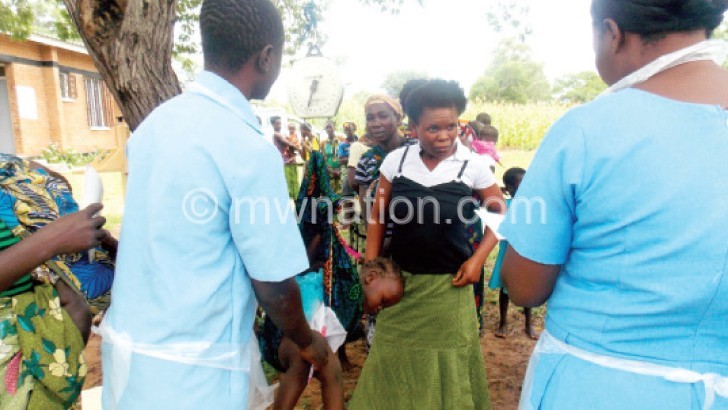Katili’s forsaken thousands
Anna Mtambo has never delivered with the assistance of skilled birth attendants.
Twice she gave birth on the way to Karonga District Hospital (KDH), about 15 kilometres (km) from her remote area.
‘‘When I delivered, there was no nurse at Katili Health Centre. People tried to call for an ambulance from Karonga, but it was futile because there was no mobile phone network,’’ recalls the mother of two.
This pushed her to deliver in a roadside bush with the assistance of her husband.
Exclusion from the nationwide phone network is one of major challenges for the hilly setting where Karonga District Council dumps waste from the town.
To the locals, it is a promise broken many times. Mobile phone companies have for several years failed to extend their coverage to almost 3 000 Malawians in the area northwest of Karonga.
Karonga District Health Office classifies the area under Traditional Authority (T/A) Kyungu as hard-to-reach.

Katili Health Centre does not offer maternal services because no single nurse wishes to stay at the far-flung facility.
”The main problem is lack of running water for patients and health workers,’’ says Ruth Ngwalu, a community health worker at the district hospital.
According to the health worker, pregnant women in Katili are expected to go and camp at KDH in time for delivery.
Two years ago, Telekom Networks Limited (TNM) sunk a borehole at the health centre, but it run dry in no time because the area is marked by low water table.
As water problems persist, villagers take turns in bringing bucketfuls of water from their homes to the scanty workforce at the clinic.
“The task is tiresome,” says group village head Cheghama. “People walk long distances to draw clean water.”
Out of seven boreholes in the area, only four are functioning. Many are breaking down.
To save lives of Katili residents and 15 other hard-to-reach communities in Karonga, Adventist Health Services (AHS) and Foundation for Community Support Services (Focus) run outreach clinics.
A team of mobile nurses conduct maternal and child health services to the far-flung populations once a month.
AHS executive director Florence Chipungu says outreach clinics constitute a lifeline for populations that are nearly unreachable.
“AHS foots fuel bills and pays allowances for nurses who visit these areas to offer maternal and antenatal services as well as family planning and HIV testing and counselling, ’’ she says.
The programme also provides an ambulance that ferries women with advanced pregnancies to the nearest health centre.
“We want to ensure no woman dies giving birth,” she says.
AHS supports 13 outreach clinics with funding from Christian Aid.
The project, which reaches out to mothers and children, is helping reduce information gaps as well as maternal deaths.
Maternal deaths in the shoreline district have dropped from 11 to just two since July 2015, says Karonga district health officer Lewis Tukula,
However, the number of babies dying in the district remains high.
Records show that about 28 babies aged below one month died from July to December last year.
Dr Owen Musopole, the zonal health officer for the North says poor access to water, communication facilities, banks, electricity and roads scare away health workers from rural areas where the demand for health services is high.
“The issues of poor roads and housing remain a challenge. They require many players for a change,’’ he says.
However, health-for-all activists want duty-bearers, including members of Parliament and councillors, to stand up and start demanding facilities that will lessen the suffering faced by communities such as Katili.
The exclusion faced by Katili residents was described as shocking by members of Kenya’s Centre for Rights Education and Awareness (Crew) and Anglican Development Services who visited the area to appreciate the impact of outreach clinics.
“If communities in Katili do not push for development from their MPs, they will continue being forgotten,” said Crew programmes officer Dickson Githinji.





